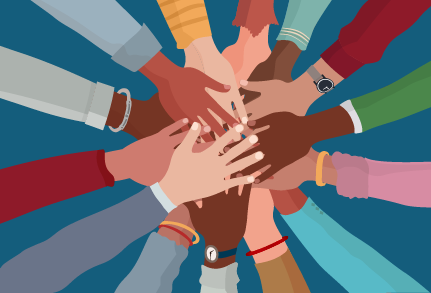Dear Advy,
I’ve witnessed some truly alarming behaviour recently by a senior partner towards one of our firm’s articling students. Mistakes happen, there is no way around that, but I don’t believe it warrants yelling, swearing, or threats towards someone just coming into the profession. I’ve tried to be supportive of the student but if it were me, no amount of positive encouragement would be enough to counteract the ongoing (let’s call it what it is) abuse this person is experiencing. The senior partner in question is not approachable and I’m concerned any intervention on my part may cause the partner to become more aggressive rather than fix the situation. I’m really unsure what to do.
Sincerely,
Against the Abuse
Dear ATA,
Unfortunately, many senior lawyers consider what you’re describing as simply part of the learning process for junior lawyers. Some firms see monitoring who can “take it” as part of the staffing process.
Neither of those things justifies abuse, so I don’t mention them to defend the behaviour you’ve observed. Understanding the mindset of someone who engages in or enables this kind of behaviour helps when you’re trying to change it.
The role of by-standers is critical in reducing and eliminating abuse. By-standers’ behaviour during bullying incidents can moderate the effect of bullying on the victim and make it less likely to happen again. Conversely, having an audience that is apathetic - or worse, seems to support the bullying behaviour - encourages an aggressor to continue and often intensify the campaign of terror. The bullying dynamic makes it very difficult for the victim of the abuse to challenge it, though we will discuss some ideas for doing that below.
Workplace incidents such as the ones you describe are not only a tragedy for the person being attacked, though that is serious enough. Legal professionals who are female, young, LGBTQ+, and/or from groups that have historically faced racial discrimination face incivility on a disproportionate scale to people who are not from those groups. Unsurprisingly, people on the receiving end of this behaviour are more likely to want to leave their workplaces and leave the profession altogether. The result is that efforts at diversifying our profession are undone by workplace bullying.
You mention that you are concerned that any intervention on your part may cause the partner to become enraged. That is a reasonable worry. That outcome is probably less likely than you’re telling yourself. We usually overestimate the risk of social “blow-back”. However, no one can blame you for being concerned about it.
It’s not easy to be that brave by-stander who challenges the bully’s behaviour. Individuals engaging in abuse are, more likely than not, someone with high power and status while the victim is usually someone with low power and status. As you have mentioned, in your workplace situation the victim is an articling student while the perpetrator is a partner. There is a significant power imbalance at play. That makes it all the more important that you and your colleagues do something to change how students (and, really, everyone) are treated in the firm.
We humans are profoundly influenced by our peers’ behaviour, and in a firm structure we are often primed to defer to those members of the firm who have that higher power and status. Another factor that works against positive action is that we are often surprised by an incident of incivility in the workplace and the shock of it can freeze us in place. Your natural inclination will be to do nothing, at least in the moment. This means you have to work hard to break out of your conditioned response, and you may need to prepare strategies and even rehearse your reaction ahead of time to help you respond appropriately in the moment. Fortunately, the most important intervention you can make isn’t what you do in the moment that an outburst happens. You can be of enormous help to this student by working to eliminate or at least mitigate these incidents before they happen.
Much of the fuel for bullying behaviour is the apparent consent and even approval of the bully’s audience – those bystanders discussed above. That may seem disheartening at first, but it’s also a reminder of how effective disapproval can be in de-escalating an abuse situation. We often imagine having to take heroic action to stop abuse, but even expressing disapproval with our facial or body language can have a significant effect, especially if it encourages others in the bully’s “audience” to do the same. Even if in the moment you don’t have the presence of mind to say that brilliant thing you’re imagining you must say, you can still help just by frowning, crossing your arms, staring with disbelief at the abusive partner or similar reactions.
By the way, no I’m not trying to discourage you from speaking up. The problem is that we often convince ourselves that if we can’t find the courage or composure to have a perfect response to bullying in the moment, then there’s nothing we can do. Don’t let a belief that your response must be “perfect” get in the way of doing something to help. You can start with something small like this and build from there.
The firm can help by clearly signaling to workplace abusers that taking their frustrations out on someone in a weaker position will cost them in terms of their status in the group rather than enhancing their power. These incidents you notice likely seem to come out of nowhere. However, the partner’s outbursts have roots not only in this partner’s attitude, but also in the reinforcement the partner receives during outbursts and afterward. One study of bullying within a group found that the strongest predictor of whether it would happen was whether members of the group believed the highest status individual(s) in the group would approve of it. Do people joke and make light of these incidents? Do people explain it away as a side-effect of this partner’s commitment to excellence? Do members of the firm talk about these incidents of abuse as some kind of rite of passage or learning experience? These kinds of justifications may be understandable ways for co-workers to cope with what they’re witnessing, but they are fueling this partner’s tendency to abuse juniors. The sooner that stops and the sooner the firm can turn that dynamic around so that the partner realizes the cost of these outbursts, the sooner the outbursts can come to an end.
That change to the firm culture can start with you. Discuss your concerns with your colleagues. When people make light of the abusive behaviour, take the opportunity to express your disagreement. Consider formalizing principal training within the firm. Even if this partner isn’t officially a principal to articling students, developing a formal training program sends the message that there is a certain level of conduct that is expected of people with responsibility to train new lawyers.
If you need to give your colleagues a reason to work to stop the abuse, remember that this partner is not just engaging in behaviour that is hurtful. This probably constitutes a breach of the partner’s ethical obligations. The Federation of Law Societies’ model Code of Conduct, which many jurisdictions have mirrored in their own codes, explicitly prohibits what you say this partner is doing. See the Model Code and have a look at your own jurisdiction’s Code as well.
You may have written in looking for some advice you could give the articling student who has been on the receiving end of the abuse you describe. While what you do and what the firm does is more likely to get to the root of this problem, here are a few ideas for what the student could do too:
- As the Code provision suggests, no this kind of behaviour is not the norm. It would be very helpful for this student to know that it is the partner’s behaviour that is aberrant, not the student’s. Remembering this can help a lot.
- The student should seek other mentors and others to work with in the firm. The student may be afraid that refusing to work with the problem partner could affect the student’s prospects for staying on with the firm. There may be some truth to that fear. You would know better than I could how your firm functions when it comes to employee retention. My own view from outside is that making “Able to work with the abusive tyrant in the corner office” part of the firm checklist for retention decisions not only leaves your firm open to potential claims by departing employees, it also deprives your firm of talented recruits. The long-term health of your firm (leaving aside considerations of fairness) depends on resolving the problems associated with this partner’s conduct. So, while finding other mentors to work with is something the student can do, you and your colleagues need to work on how the firm responds.
- With the kind of support from you and the firm discussed above, the student may be able to be confident in saying “I can’t engage with you when you talk to me this way.” or “I really want to learn but this isn’t working.” Yes, that is easier said than done when you are a student speaking to a partner. With the kind of support from you and the firm discussed above, the student may be able to get to a position where it is possible to say this.
- Dealing with incivility is unfortunately a skill that must be learned. Not only will co-workers engage in incivility, but so will other counsel, judges, and clients. While that does not excuse the behaviour, it is an opportunity to learn new skills. Some of what is described above is a way of responding to incivility in general. Encourage the student to ask peers for ideas of how to deal with incidents of incivility generally. There may be strategies that work well in the context of this firm, either in getting out of an abusive situation or at least in recovering afterward. One caution about relying on peers’ coping strategies is that those can often involve using alcohol or other substances. While it might seem effective in the short run, self-medicating this way will make the problem worse rather than better in the long run.
The most important thing you can say to the student is that this is not something the student must go through alone. Isolation makes dealing with the abuse more difficult. If the student doesn't appear to have a supportive cohort, look for ways to break the isolation the student probably feels right now. Isolation encourages bullying behaviour because the abuser often detects that this victim is more vulnerable. A supportive group doesn’t have be focused directly on combatting the abuse. Even just demonstrating that this student has friends in the firm and/or in the profession more broadly can help mitigate the effects of the abuse.
Remember that your jurisdiction's lawyer assistance program has free psychological supports to help this student. It may also have a peer support program. The student may not know about what is available, and/or may be reluctant to make use of those supports for fear of being labeled negatively in some way. The stigma associated with having mental health concerns can compound the damage that the abuse itself causes. Do your best to destigmatise help-seeking in your organization by talking openly about what you do to take care of your own mental health.
Many lawyer assistance programs give out mugs, pens, and other things you can leave around the office. Those not only give information on how to contact them, but they also help break the invisible barrier that stigma presents. If your local lawyer assistance agency offers those kinds of items, find a way to leave those lying around the office where the student could see them. It feels less weird to call a helpline on an office coffee mug than it does to go to the trouble of looking up the lawyer assistance agency’s web page.
The more we normalize asking for help, the more others around us will take that brave step of seeking it themselves. Thank-you for doing what you have done so far for this student and for writing your letter.
Be well,
Advy










